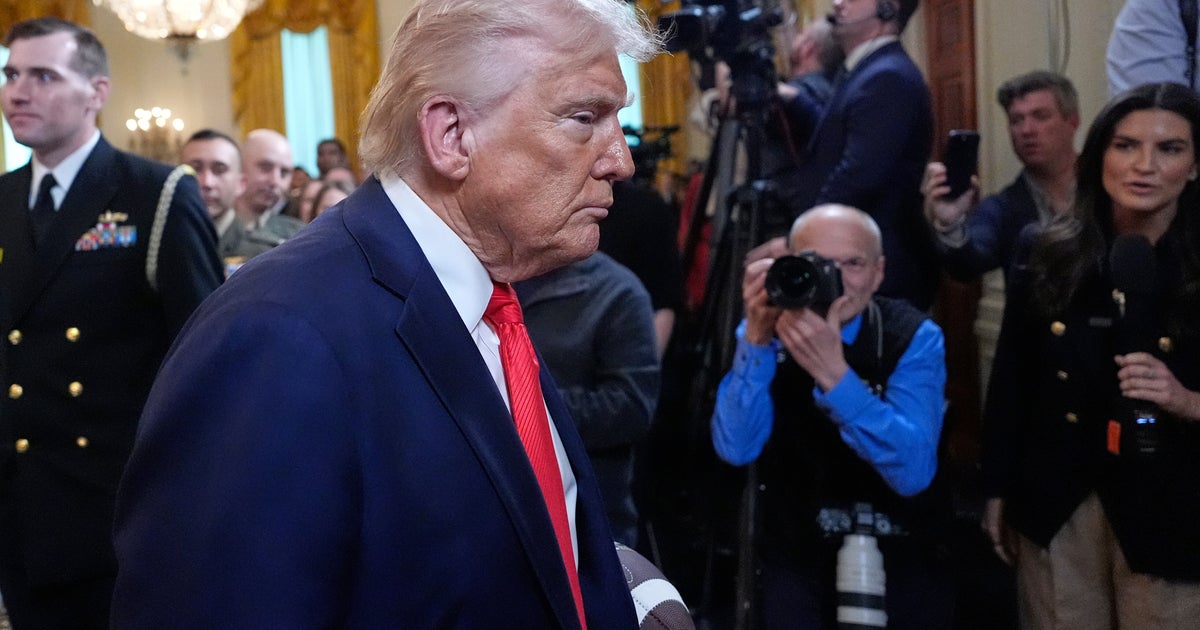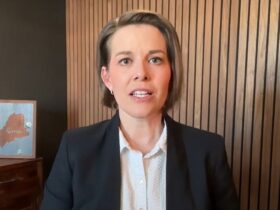U.S. District Judge James Boasberg said there is cause to hold the Trump administration in criminal contempt for ignoring his orders over flights containing migrants who were sent to El Salvador.
In a lengthy ruling issued Wednesday, the judge said there was sufficient evidence to show a “willful disregard” by the administration of his orders in March that directed officials to halt the flight of more than 130 Venezuelan migrants to the CECOT prison in El Salvador without any due process. The administration sent the migrants amid Trump’s invocation of the Alien Enemies Act.
For the last several weeks, Boasberg has grilled officials about the flights, pressing for details on when the government started hauling people out of the United States and who specifically made those orders. Prosecutors have dodged his questions routinely, claiming state secret privileges over information or flatly asserting that they simply don’t know who instructed the planes to keep going even after his order was issued.
On Wednesday, Boasberg gave attorneys representing the government until April 23 to comply with his requests for information. He also offered an alternate path: He would “purge” the contempt proceedings if the administration asserts custody over the people who were removed so that they “might avail themselves of their right to challenge their removability through a habeas proceeding.”
If they opt not to comply, Boasberg gave one other option: Prosecutors should file a declaration stating exactly who made the decision not to stop the transfer of migrants.
The “foundational ‘rule of law,’” Boasberg wrote, demands that there be an inquiry over the administration’s compliance, or lack thereof.
That “rule of law,” he said, “reflects a belief that in the fair administration of justice no man can be judge in his own case,” no matter how “exalted his station” or “righteous his motives.”
In March, when Boasberg issued an oral order demanding the return of the two flights to the U.S., Deputy Assistant Attorney General Drew Ensign argued that an oral order was not the same as a written one. Legally, whether oral or written, the orders hold the same force of effect. The judge wrote Wednesday that he had tried to give the Justice Department multiple chances to “rectify or explain their actions” after that exchange, but they did not.
The administration had challenged Boasberg’s orders on appeal and lost, ultimately taking the fight to the Supreme Court. The justices vacated Boasberg’s order, 5-4, and made it clear that there are limits on how deportations can play out and that the migrants the Trump administration targeted for removal must be given a chance to challenge their detention under basic habeas corpus rights.
“The Constitution does not tolerate willful disobedience of judicial orders — especially by officials of a coordinate branch who have sworn an oath to uphold it,” Boasberg wrote.
Allowing officials to “freely annul” court orders would make a “solemn mockery of the Constitution itself,” he added.
Typically, criminal contempt involves fines or imprisonment. Boasberg’s order was mum on which avenue he would consider. He did, however, reveal that should he prosecute the officials for criminal contempt, he would take one of two paths.
Federal rules for criminal procedure state that contempt proceedings can be prosecuted by an attorney for the government. Should the Justice Department refuse or decline to assign someone to prosecute the case, then Boasberg said he would appoint an outside attorney to do it.
The judge explained Wednesday that his orders should be simple enough to follow.
He was “exceedingly doubtful” of the government’s claims to state secret privileges, he wrote.
After all, he is not asking for information about diplomatic agreements that may have been negotiated for the flights or for any sensitive military measures taken or strategy, the opinion highlights.
“Instead, the court is simply seeking to confirm times and numbers: how many passengers the two flights carried, whether they were all deported pursuant to the Proclamation, and when they were transferred out of U.S. custody. The court is skeptical that such information rises to the level of a state secret. As noted, the Government has widely publicized details of the flights through social media and official announcements,” Boasberg wrote.
The judge pointed out one of those “boasts” in his order.
Hours after March’s court order to return the flights was issued, Secretary of State Marco Rubio shared a post on X (formerly Twitter), the judge noted: “The Secretary of State, for instance, retweeted a post in which, above a news headline noting this Court’s order to return the flights to the United States, the President of El Salvador wrote: ‘Oopsie . . . Too late 😂.’”
















Leave a Reply